Qatar Data: Di Maria at the end of a brilliant move and France kickstarted by Mbappe
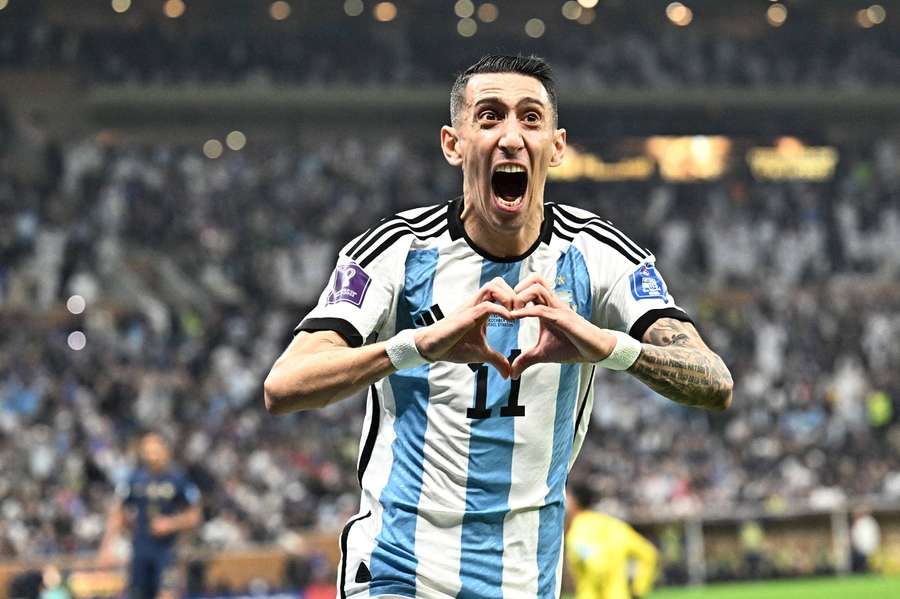
While the French celebrated their great victories in 1998 and 2018, Argentina's titles were already deep in the past. The last time the team in white and blue stripes from South America celebrated was 36 years ago.
Fans from all over were also planning to enjoy an unmissable spectacle as the tournament’s biggest stars - Lionel Messi and Kylian Mbappe - were pitted against each other. And the match exceeded all possible expectations. It came down to a penalty shootout, after which the seven-time Ballon d'Or winner, Messi, celebrated. Thanks to his two goals, the Argentines lifted the trophy for the third time in their history.
Argentina completely controlled the first half. In the 21st minute, Dembele fouled Di Maria in the penalty area and the subsequent penalty was converted by Lionel Messi. The Argentine maestro thus became the first player in World Cup history to score in every single round of a tournament. Moreover, thirteen minutes later, Angel Di María capped off a beautiful sequence of play by becoming the second goal scorer of this year's final at the tender age of 34.
For the record, that meant that two players over the age of 34 scored in the final. In the last 88 years only two other players who were 34 or older have scored in a final.
France came through after the break and Kylian Mbappe played a major role. He converted a penalty after Otamendi's foul on Kolo Muani in the box and just 97 seconds later finished with a first time shot for their second goal. The Frenchman became the first footballer to score two goals in a final since Brazil's Ronaldo in 2002.
The match went to extra time, where Messi took the lead again, finishing off Martinez's saved attempt and scoring his 13th goal at a World Cup. Even that was not enough for Argentina, however, as Mbappe converted another penalty kick after a handball from Montiel in the penalty area.
With four goals he became the all-time top scorer in World Cup finals and scored the first hat-trick in a final since England's Geoff Hurst in 1966 against Germany. This year's title decider would have to go down to a penalty shootout. Messi and Mbappe didn't falter, but two other Frenchmen did. And after Montiel's successful penalty, Argentina celebrated a historic third title. They beat France 4-2 in the shootout.
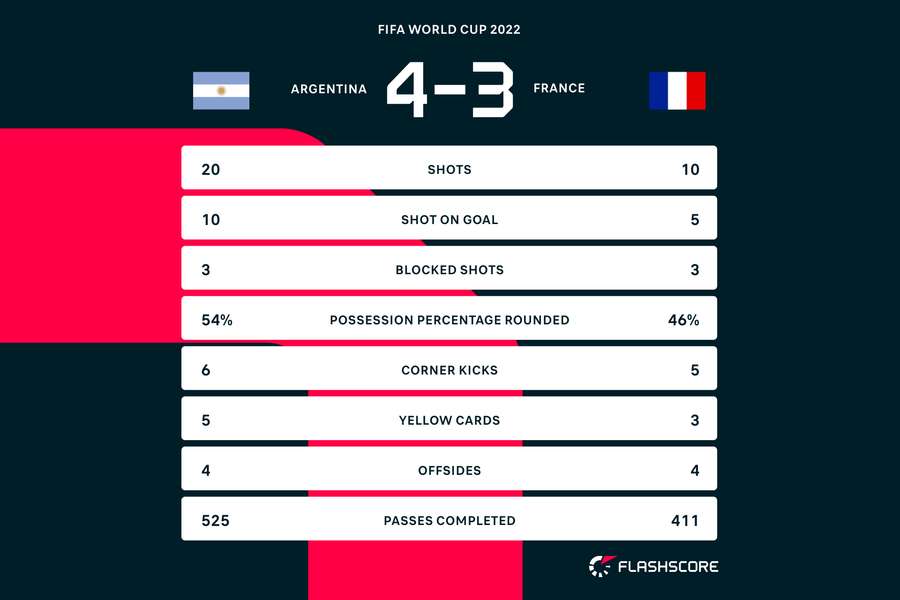
Argentina reigned supreme in all the important statistical indicators, mainly thanks to a superbly managed first half. They had twice as many shots and twice as many of them hit the target. The territorial superiority of the winners was also proven by their greater number of successful passes. The French made 114 fewer passes in the match.
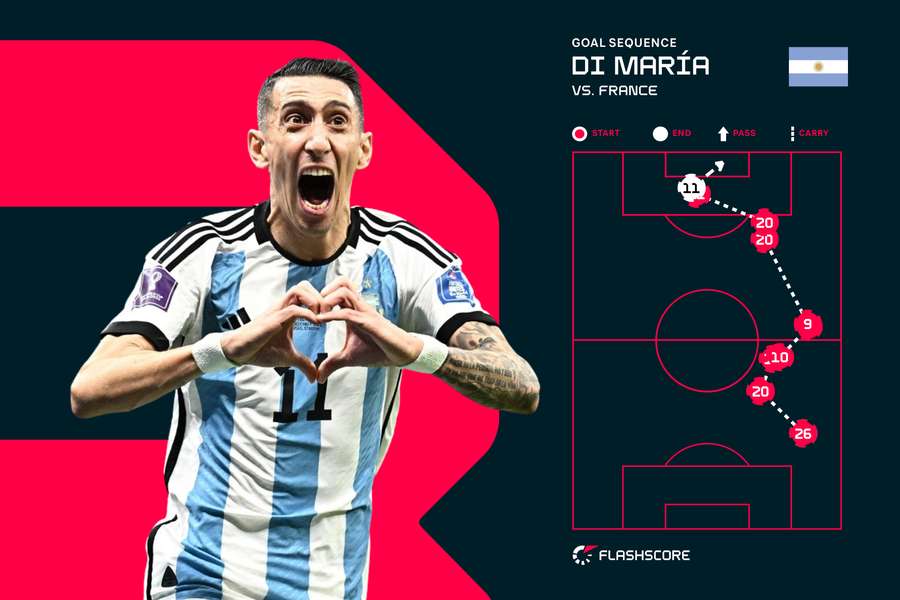
Without a doubt, the best goal of the final was Angel Di Maria's 36th minute strike, which gave the champions a 2-0 lead. A series of quick passes, which included Messi, resulted in a cross which was beautifully dealt with by Alexis Mac Allister. His pass to Di Maria was millimetre accurate and the Argentine winger had an easy job to finish the move off.
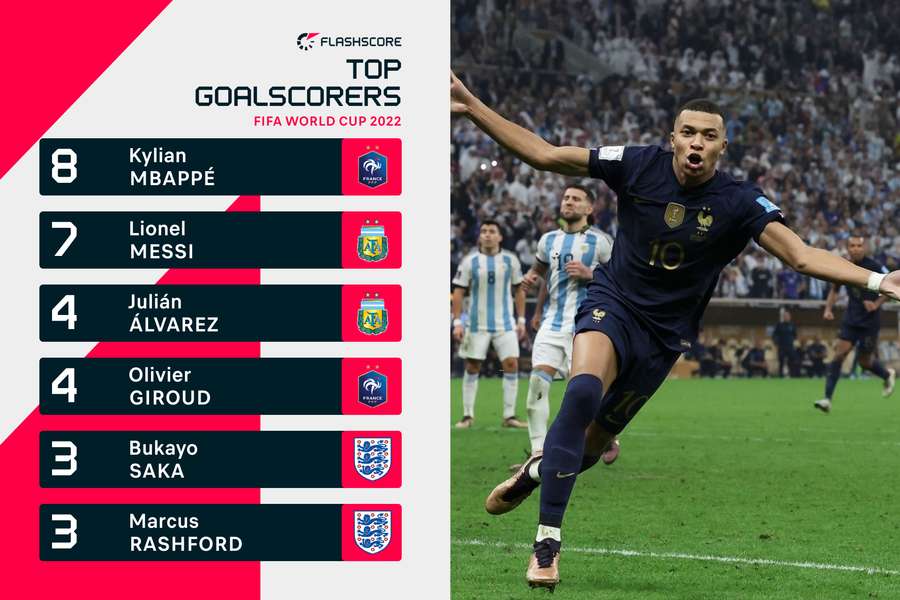
The final rankings of the top scorers in the tournament proves just how important the final was. Giroud and Alvarez didn't score in the match, but Messi and Mbappe ran riot. Their tug-of-war for top spot was eventually won by the Frenchman, who scored eight goals in total, thanks to his successful penalty in extra time. The most important victory, however, was celebrated by the Argentine. England also had two players in the top five scorers.
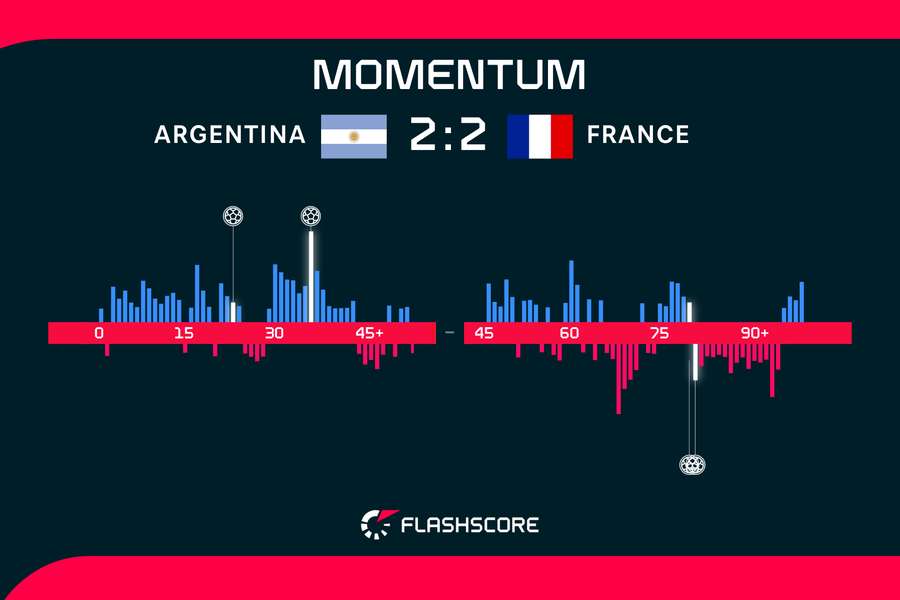
The momentum of regular time, after which the score was tied at 2-2, belonged for the most part to Argentina. They controlled the game, especially in the first half, and had the upper hand until France's first goal. Mbappe’s goals helped the European side and the French were lucky to see the game go into extra time at all.
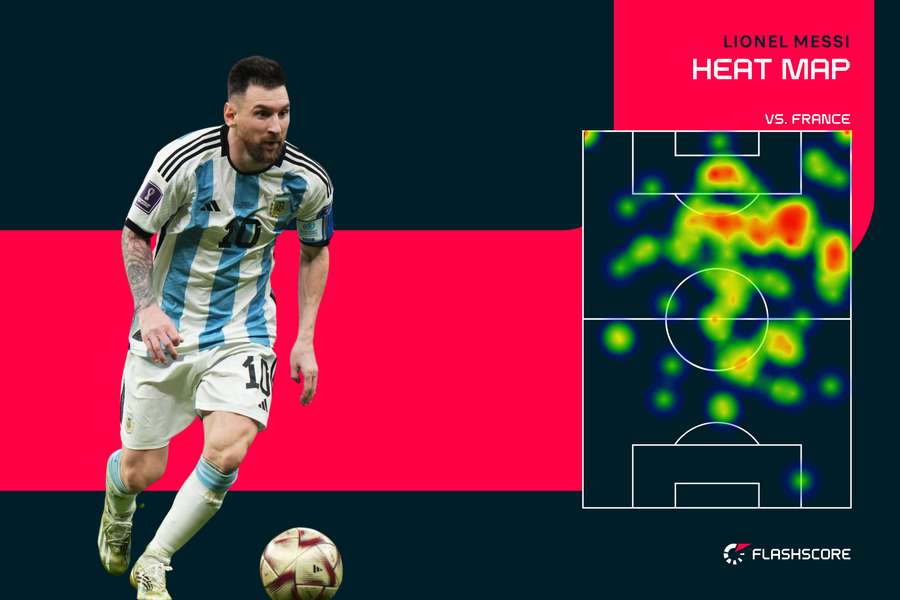
Although Lionel Messi's Heat Map shows that he was predominantly on the right side of the pitch as expected, the Argentine captain was virtually everywhere. He often threatened the French goalkeeper Lloris in the area right in front of goal, where he scored in extra time.
Although the Argentines started the tournament with an unexpected 2-1 defeat to the Saudis, they reached the final and turned their sixth appearance there into their third title. After 36 long years, Argentina have returned to the footballing throne. Lionel Messi was named the player of the match and then best player of the tournament.
